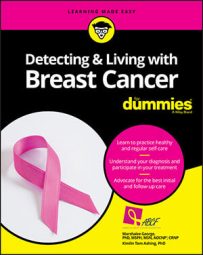- Breast surgeon (surgical oncologist): A doctor who performs biopsies and other surgical procedures in breast cancer patients.
- Medical oncologist: A doctor who specializes in diagnosing and treating cancer using chemotherapy, hormonal therapy, biological therapy, and targeted therapy. A medical oncologist also gives supportive care and may coordinate treatment given by other specialists.
- Oncology nurse: A registered nurse who specializes in treating and caring for people who have cancer.
- Oncology nurse practitioner or nurse practitioner (NP): A registered nurse who has additional education and training in how to diagnose and treat disease and who is licensed at the state level and certified by national nursing organizations. In cancer care, a nurse practitioner may manage the primary care of patients and their families, based on their specialized training.
- Pathologist: A doctor who identifies diseases by studying cells and tissues under a microscope.
- Physician assistant: A health professional who is licensed to do certain medical procedures under the guidance of a doctor. A physician assistant may take medical histories, conduct physical exams, take blood and urine samples, care for wounds, give injections, and manage the care of patients and their families, based on their specialized training.
- Radiation oncologist: A doctor who specializes in using radiation to treat cancer.
- Radiologist: A doctor who specializes in creating and interpreting pictures of areas inside the body using X-rays, sound waves, or other types of energy. Many radiologists perform biopsies; if they do, they are called interventional radiologists.
- Social worker: A professional trained to talk with people and their families about emotional or physical needs, and to find them support services.

